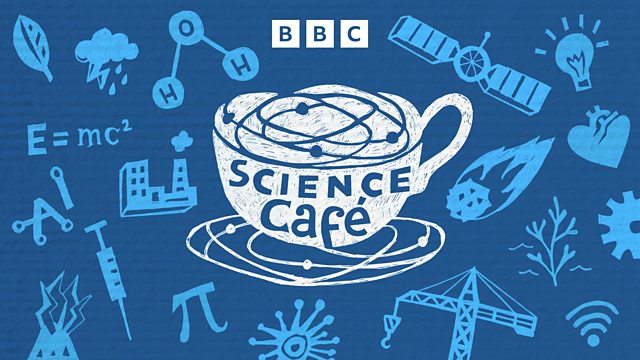
19/11/2013
Why do animals herd together? And how do they decide who is the leader? Adam Walton visits the SHOAL Project at Swansea University to explore its work on packs, flocks and schools.
Last on
Collective Behaviour
From a pride of lions to a murmuration of starlings; a conspiracy of lemurs to a cackle of hyenas: Ìýthere’s certainly poetry in the collective names we use for animals. But there are questions too. For instance, why do some species congregate together and not others? Is it about safety in numbers? Or finding food? Or sex? And when there’s a group of thousands of birds or fish, how do they decide which way to go?
Ìý
In this week’s Science Café Adam herds together a few of the scientists who can answer those questions as he visits Swansea University’s SHOAL group. SHOAL stands for Sociality, Heterogeneity, Organisation And Leadership and it’s a team of biologists who are investigating the behaviour of large groups of animals and exploring the advantages and disadvantages of being in a herd, shoal, pack or flock.
Ìý
Dr. Andrew King who leads the SHOAL group outlines the advantages of staying in a group: there are more eyes, ears and noses around to find food and detect predators and it’s easier to find a mate. But not all animals within a group are the same. Andrew explains that some individuals are bolder than others, which makes them more likely to find new sources of food but also makes them more vulnerable to being eaten by predators.
Ìý
Adam meets Ph. D. students Gaëlle Fehlmann and Caspian Johnson, who are both working on baboons. Gaëlle is studying South African baboons which raid people’s houses and cars in search of food while Caspian works on the interaction between baboons and chimpanzees in Tanzania. He also visits SHOAL’s aquatic lab to meet Matt Hansen from the University of Sydney who’s exploring the foraging behaviour of fish.
Ìý
We also hear from Andrew King about his research into collective behaviour in human beings. Radio Wales community reporter Wyn Thomas went along to a recent Swansea Science Café event Ìýwhere Andrew demonstrated ‘the wisdom of crowds’ by asking members of the audience to guess the number of sweets in a jar. No one person got anywhere close to the right number but the average of all the guesses was uncannily accurate. Clearly, many heads are better than one!
Broadcasts
- Tue 19 Nov 2013 18:30Â鶹Éç Radio Wales
- Sun 24 Nov 2013 06:30Â鶹Éç Radio Wales
- Sun 23 Mar 2014 06:30Â鶹Éç Radio Wales

